Related Research Articles
The following is an overview of the events of 1896 in film, including a list of films released and notable births.

Tom Tyler was an American actor known for his leading roles in low-budget Western films in the silent and sound eras, and for his portrayal of superhero Captain Marvel in the 1941 serial film The Adventures of Captain Marvel. Tyler also played Kharis in 1940's The Mummy's Hand, a popular Universal Studios monster film.

John Boles was an American singer and actor best known for playing Victor Moritz in the 1931 film Frankenstein.

Ruth Stonehouse was an actress and film director during the silent film era. Her stage career started at the age of eight as a dancer in Arizona shows.

Carl Stockdale also known as Carlton Stockdale was one of the longest-working Hollywood veteran actors, with a career dating from the early 1910s. He also made the difficult transition from silent films to talkies.
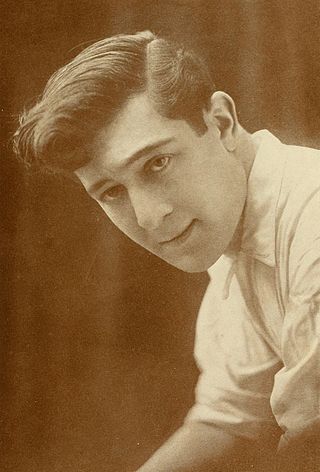
Hobart Henley was an American silent film actor, director, screenwriter and producer. He was involved in over 60 films either as an actor or director or both from 1914 to 1934.
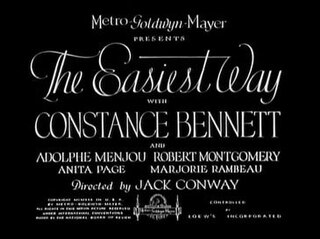
The Easiest Way is a 1931 American pre-Code MGM drama film directed by Jack Conway. Adapted from the 1909 play of the same name written by Eugene Walter and directed by David Belasco, the film stars Constance Bennett, Adolphe Menjou, Robert Montgomery, Marjorie Rambeau, Anita Page, and Clark Gable

Lillian Walker, born Lillian Wolke, was an American film actress of the silent era. She appeared in more than 170 films, most of them shorts, between 1909 and 1934.

The Common Law is a 1931 American pre-Code romantic drama film directed by Paul L. Stein, produced by Charles R. Rogers and starring Constance Bennett and Joel McCrea. Based on Robert W. Chambers' 1911 novel of the same name, the film was the third film adaptation of the book, and the first during the sound-film era. It was received well both at the box office and by film critics, becoming one of RKO's most financially successful films of the year.
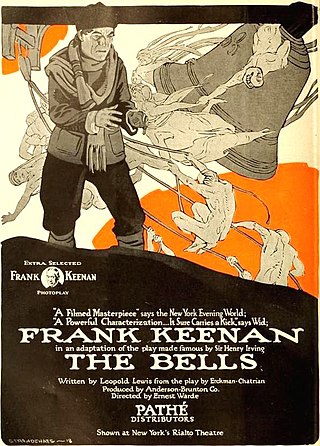
The Bells is a lost 1918 American silent drama film released by Pathé Exchange. It was adapted from the 1867 French play Le Juif Polonais by Erckmann-Chatrian and an 1871 English-language version, The Bells, by Leopold Lewis. The latter was a favorite vehicle for actor Henry Irving. This silent film stars Frank Keenan and Lois Wilson. The story was remade in 1926 as The Bells with Lionel Barrymore and Boris Karloff.

War Brides is a lost 1916 American silent war drama film directed by Herbert Brenon and starring Alla Nazimova. The film marked Nazimova's debut in motion pictures.

Hugh Trevor was an American actor whose short career began at the very end of the silent era in 1927. He would appear in nineteen films in the scant six years during which he was active. He did not fare well with the advent of talking pictures, and retired from the industry in 1931. His life was cut short when he unexpectedly died from complications following appendectomy surgery in 1933.

F. McGrew Willis was an American screenwriter of the silent and early sound film eras. Born Frank McGrew Willis on August 18, 1891, in Pleasanton, Iowa, he broke into the film industry writing film shorts in 1914 and 1915 as a freelance screenwriter. His first feature credit came in 1915, with The Quest, the first of three features he would pen in 1915. Over the next fourteen years he would write the scripts or stories for 43 silent films, three of which, The Girl in the Pullman (1927), Annapolis (1928), and A Blonde for a Night (1928), he also produced for either De Mille Pictures and/or Pathé Exchange. He would also produce another three films in 1928. In 1929, and through the next 6 years of the blossoming talking picture era, he would write the screenplays or stories for another 18 films. In the late 1930s he would work in England, where he scripted 6 films during the remainder of the decade. His final screenwriting credit would come on 1941's Sis Hopkins, for which he wrote the story. Willis died on October 13, 1957, in Menlo Park, California, and was buried in Mountain View Cemetery in Oakland, California.
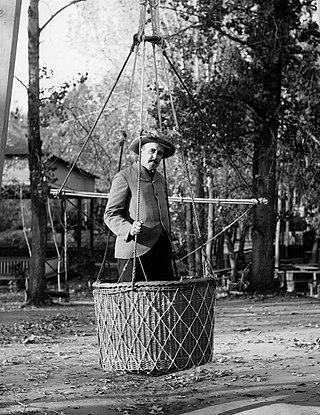
Harry Hale Buckwalter, sometimes credited as Harry H. Buckwalter or Henry H. Buckwalter, was an American photographer, journalist, photojournalist, and silent film director and producer.

Spuds is a 1927 American silent comedy film directed by Edward Ludwig and starring Larry Semon, Dorothy Dwan, and Edward Hearn. Semon and Dwan were married.

Astra Film Corp was an American film production company that produced silent films. Louis J. Gasnier was the company's president. George B. Seitz co-founded it. It was making films by 1916. It became Louis J. Gasnier Productions after Seitz left.
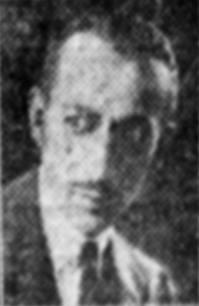
Henry McDonald Sedley (1881–1962) was an American actor. He caused the death of a fellow student while a freshman at Yale University in 1901, which may have been the reason for a young woman being banned by her grandmother from marrying him.

The Shepherd of the Hills is a 1928 American silent drama film directed by Albert S. Rogell and starring Alec B. Francis, Molly O'Day, and John Boles.

Thorns and Orange Blossoms is a 1922 American silent drama film directed by Louis J. Gasnier and starring Estelle Taylor, Kenneth Harlan, and Edith Roberts.

The Call of Home is a 1922 American silent drama film directed by Louis J. Gasnier and starring Léon Bary, Irene Rich and Ramsey Wallace.
References
- ↑ Progressive Silent Film List: The Bride of the Colorado at silentera.com
- ↑ "The Shadow Stage: The Bride of the Colorado". Photoplay. 33 (6). New York City: Photoplay Publishing Company: 112. May 1928. Retrieved April 6, 2023.
- ↑ Testimony of John R. Bray, pp. 976-978, exhibit in Pathe Exchange, Inc. v. Bray Pictures Corp.,231A.D.465(N.Y. App. Div. 1st Dept.1931).
- ↑ Trivia, IMDb record